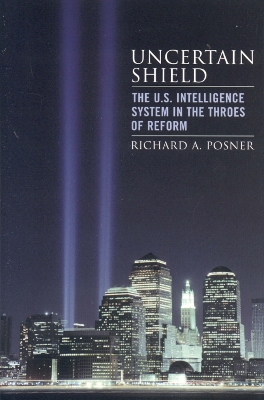Hoover Studies in Politics, Economics, and Society
2 total works
Ever since the publication in 2004 of the 9/11 Commission Report, the U.S. intelligence community has been in the throes of a convulsive movement for reform. In Preventing Surprise Attacks (2005), Richard A. Posner carried the story of the reform movement up to the enactment of the Intelligence Reform and Terrorism Prevention Act of 2004, which produced a defective plan for reorganizing the intelligence system, partly as result of the failure of the 9/11 Commission and Congress to bring historical, comparative, and scholarly perspectives to bear issues. At that time, however, the new structure had not yet been built. Posner's new book brings the story up to date. He argues that the decisions about structure that the Administration has made in implementation of the Act are creating too top-heavy, too centralized, an intelligence system. The book * exposes fallacies in criticisms of the performance of the U.S. intelligence services; * analyzes structures and priorities for directing and coordinating U.S. intelligence in the era of global terrorism; * presents new evidence for the need to create a domestic intelligence agency separate from the FBI, and a detailed blueprint for such an agency; * incorporates a wealth of material based on developments since the first book, including the report of the presidential commission on weapons of mass destruction and the botched response to Hurricane Katrina; * exposes the inadequacy of the national security computer networks; * critically examines Congress's performance in the intelligence field, and raises constitutional issues concerning the respective powers of Congress and the President; * emphasizes the importance of reforms that do not require questionable organizational changes. The book is published in cooperation with the Hoover Institution
The commission to investigate the September 11, 2001, terrorist attacks on the United States issued its final report in July of 2004, in which it recommended a dramatic overhaul of the nation's intelligence system. Congress responded by hastily enacting the Intelligence Reform and Terrorism Prevention Act of 2004, which adopts many of the 9/11 commission's specific recommendations, though with a number of alterations. Richard A. Posner, in the first full-length study of the post-9/11 movement for intelligence reform, argues that the 9/11 commission's analysis, on which Congress relied, was superficial and its organizational proposals unsound. The commission, followed by Congress, exaggerated the benefits of centralizing control over intelligence; neglected the relevant scholarship dealing with surprise attacks, organization theory, the principles of intelligence, and the experience of foreign nations, some of which have a longer history of fighting terrorism than the United States; and as a result ignored the psychological, economic, historical, sociological, and comparative dimensions of the issue of intelligence reform. Posner explains, however, that a ray of hope remains: the reorganization provisions of the new Act are so vague, as a result of intense politicking, that the actual shape of the reorganized system will depend critically on decisions made by the President in implementing the Act. In a searing critique, Posner exposes the pitfalls created by the new legislation, identifies the issues overlooked by the 9/11 commission and Congress, and suggests directions for real reform. This book is published in cooperation with the Hoover Institution

